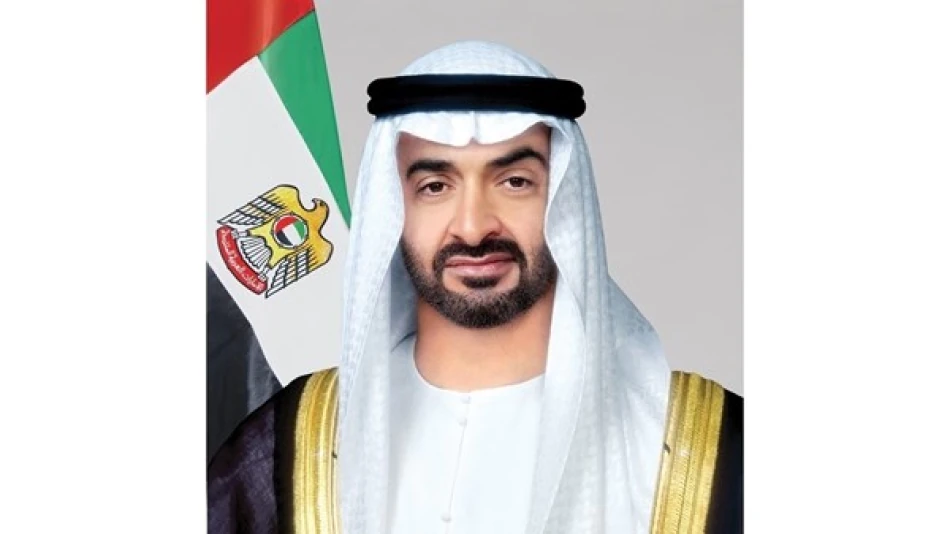
UAE President Visits Karabakh, Welcomed by Azerbaijani Counterpart for Official Ceremony
UAE President Makes Historic Visit to Shusha, Signaling Deeper Gulf-Caucasus Strategic Ties
UAE President Sheikh Mohammed bin Zayed Al Nahyan's official visit to the historic city of Shusha in Azerbaijan's Karabakh region marks a significant diplomatic milestone, underscoring the Gulf state's expanding influence in the strategically vital Caucasus corridor. The ceremonial reception, complete with honor guards and national anthems, reflects the deepening economic and political partnership between two energy-rich nations seeking to diversify their geopolitical alliances.
Symbolic Diplomacy in a Contested Region
The choice of Shusha as the venue carries profound symbolic weight. Once considered the cultural heart of Karabakh, the city was recaptured by Azerbaijan in 2020 during the Second Nagorno-Karabakh War, ending nearly three decades of Armenian control. By hosting the UAE leader in this historically contested territory, President Ilham Aliyev is showcasing Azerbaijan's sovereignty over the region while cementing international recognition of its territorial gains.
The formal ceremony, attended by high-ranking officials from both nations including UAE sheikhs and Azerbaijani ministers, demonstrates the institutional depth of bilateral relations that extend far beyond personal diplomacy.
Economic Pragmatism Drives Gulf-Caucasus Convergence
Energy and Infrastructure Synergies
This diplomatic engagement reflects broader economic realities shaping Middle Eastern geopolitics. Both nations are oil and gas producers seeking to leverage their hydrocarbon wealth for long-term economic transformation. Azerbaijan's position as a crucial energy supplier to Europe through the Southern Gas Corridor aligns with the UAE's ambitions to become a global energy trading hub.
The UAE has emerged as a major investor in Azerbaijan's non-oil sectors, particularly renewable energy and digital infrastructure. This partnership mirrors similar Gulf investments in Central Asian markets, where resource-rich nations seek capital and expertise for economic diversification.
Strategic Corridor Politics
The UAE's growing presence in the Caucasus also reflects its broader strategy of establishing influence along key trade routes. Azerbaijan serves as a critical link between Europe and Asia, particularly as global supply chains seek alternatives to traditional routes through Russia and China. For Abu Dhabi, strengthening ties with Baku offers access to emerging markets in Central Asia and potential partnerships in the growing Middle Corridor trade route.
Regional Implications and Power Balancing
This diplomatic exchange occurs against the backdrop of shifting regional alignments. Russia's reduced influence in the South Caucasus following its focus on Ukraine has created opportunities for middle powers like the UAE to expand their diplomatic footprint. Similarly, Iran's complex relationship with both Armenia and Azerbaijan provides space for Gulf states to offer alternative partnerships.
The visit also signals Azerbaijan's success in balancing relationships with multiple partners while maintaining its strategic autonomy. Unlike some regional states that have been forced to choose sides in great power competition, Azerbaijan has managed to maintain productive relationships with Russia, Turkey, Iran, and now increasingly with Gulf states.
Investment and Market Opportunities
For investors, this diplomatic warming suggests expanding opportunities in Azerbaijan's reconstruction efforts, particularly in the liberated territories of Karabakh. The UAE's sovereign wealth funds and private investors have shown increasing interest in post-conflict reconstruction projects, viewing them as long-term value creation opportunities.
The partnership also opens potential for joint ventures in third markets, leveraging Azerbaijan's regional connectivity and the UAE's global financial networks. This could prove particularly valuable as both countries seek to reduce their dependence on traditional energy exports and develop new revenue streams in logistics, technology, and services.
Most Viewed News

 Layla Al Mansoori
Layla Al Mansoori






